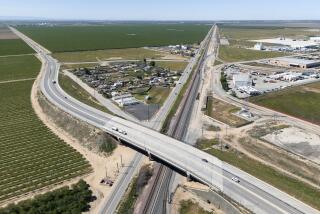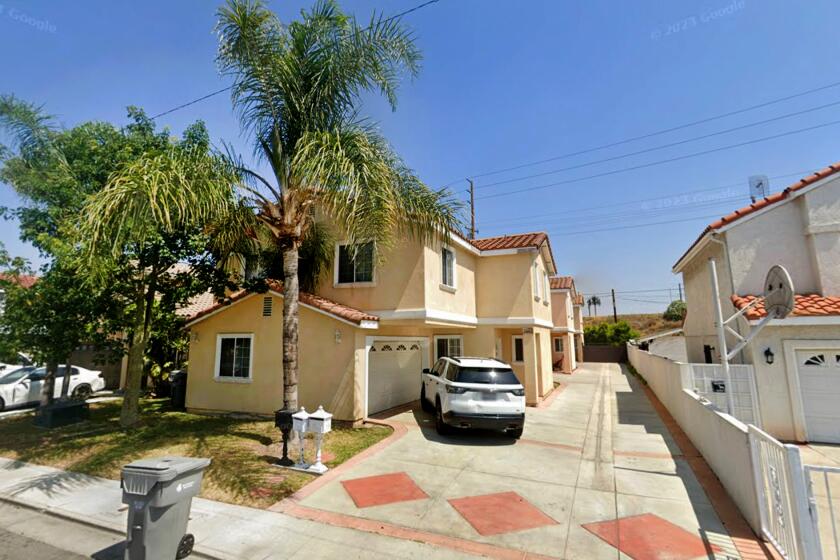Former Irvine Mayor Testifies in Smith Case, Says City Needed Revenue
A former Irvine mayor testified Monday that the city’s development in the last 16 years has been beset by problems and interruptions, including a lack of revenue-producing commercial and industrial properties.
David G. Sills, a 10-year Irvine City Council member and four-term mayor, testified for five hours as Irvine Co. attorneys attempted to discredit heiress Joan Irvine Smith’s claim that she and her mother deserve more than $300 million for their stake in the company.
As the trial resumed after a week’s recess, the company pursued its stance that Irvine’s development since its incorporation in 1971 was slower and less extensive than Smith has alleged.
Smith, who inherited her holdings from her grandfather, James Irvine II, has challenged the amount paid for the Irvine Co. by Donald L. Bren, who purchased a controlling interest in the company in November, 1983.
Bren has offered Smith and her mother, Athalie R. Clarke, $88 million for their 11% stake in the company, which owns about one-sixth of the land in Orange County. The case is being tried in this Detroit suburb because the Irvine Co.’s headquarters is in Michigan.
In a change in the company’s witness list, Sills replaced Irvine Co. Vice President Monica Florian on the stand Monday. Sills, an Orange County Superior Court judge, was allowed to testify Monday and today to take advantage of a break in his court docket.
Problems in Development
The former mayor, who described his stance while a council member as “moderate--some would call it pro-growth,” testified that Irvine’s development has been problematic.
Sills said he became convinced shortly after his election to the council in 1976 that the city needed more commercial and industrial development to support existing areas, including its residential neighborhoods.
“I hesitate to use the word ‘threat,’ but there would have been difficulty in making our revenue meet the expenses of maintaining residential areas,” he told the court. “I was concerned about the slowness or lack of commercial development in the city of Irvine.”
Without accompanying commercial activity, residential development in Irvine created a revenue drain because of the cost of community services and the lack of tax revenue to support them, Sills said. Retail businesses were needed, he said, to generate sales tax income.
Testifying before Robert B. Webster, a retired Michigan judge who is serving as referee in the trial, Sills said the Irvine Co. did not have a reputation for pressuring the city council to get what it wanted.
Denies Pressure Tactics
“Their proposals were substantially changed, like any others,” Sills said.
The company, whose influence extends beyond the Irvine city limits into neighboring communities, never contributed to his city council campaigns, Sills said.
“I was always told it was their policy” not to make local political contributions, he told the court.
Sills likened the city’s relationship with the giant landholder to a marriage “in a city where you can’t get a divorce.”
Sills said neighborhood associations, political groups and the Sierra Club impeded residential and commercial development in the community. In addition, the passage of Proposition 13 eliminated sources of state revenue that might have spurred more construction.
In 1977, Sills said, office space was so limited in Irvine that he had to locate his law practice in Newport Beach.
More to Read
Start your day right
Sign up for Essential California for news, features and recommendations from the L.A. Times and beyond in your inbox six days a week.
You may occasionally receive promotional content from the Los Angeles Times.






